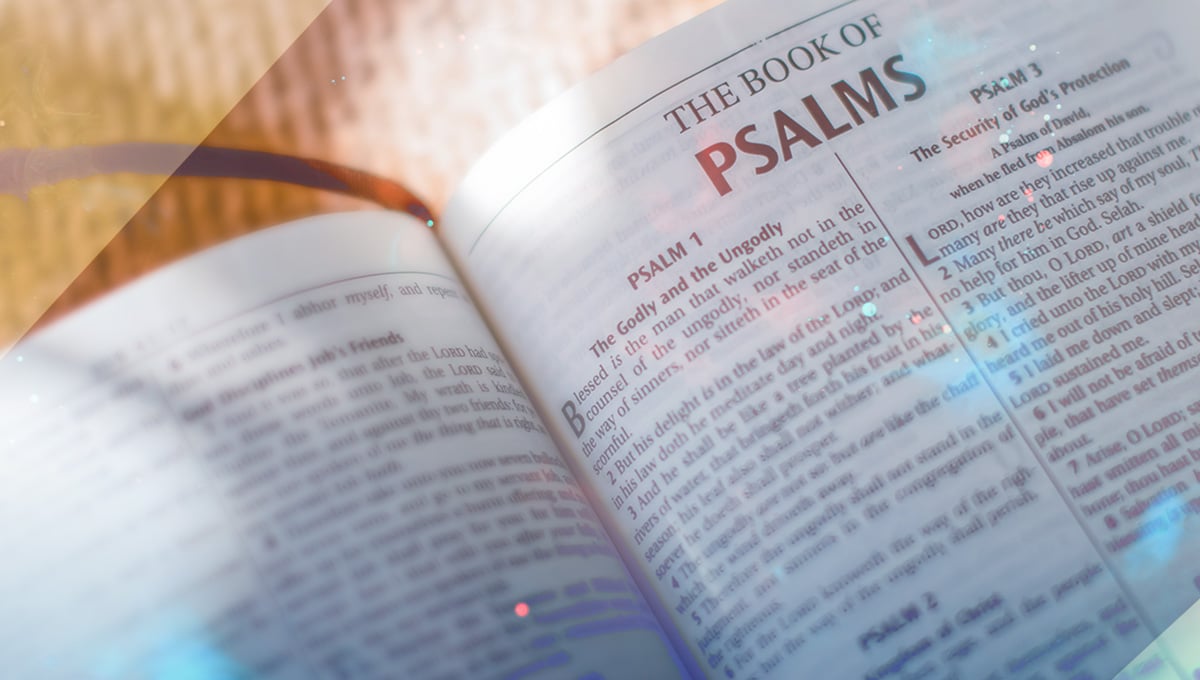5 Simple Ways to Connect with God Through His Word

Twenty-five years after beginning to read God's word herself, Rachel Tiemeyer shares motivation and tips for how to start (and continue) reading the Bible regularly.
I’m not a trained pastor or theologian, but I have been reading the Bible for years now. Along the way, I’ve picked up some helpful Bible-reading strategies.
Psalm 1 uses a tree illustration to show that our root systems as believers grow when we spend time in God's word regularly:
Blessed is the one…whose delight is in the law of the Lord,
and who meditates on his law, day and night.
That person is like a tree planted by streams of water,
which yields its fruit in season
and whose leaf does not wither—
whatever they do prospers.
Delighting in and meditating on God's word sounds great, but where do we start?
5 Tips for How to Start Reading the Bible
Reading the Bible--especially when we're just starting--can feel laborious, confusing, and even frustrating at times.
So, here are five simple strategies that helped me start reading the Bible 25 years ago and that continue to help me persevere in meeting God there.
1. Something is better than nothing.
Not sure where to start when opening your Bible? Overwhelmed at the prospect of spending 30 minutes reading it? Here’s my advice: just start with something.
Even a few minutes of reading Scripture can help take our eyes off of ourselves and our own circumstances and lift them up to God. And that can change our whole perspective.
You might be surprised how 5 minutes of “something” turns into a habit and grows your appetite to spend even more time reading the Bible.
2. Start with a Psalm or a Gospel.
When I only have a few minutes to read, I often turn to a Psalm. The Psalms not only give us a picture of who God is, but they teach us how to interact with and pray to God.
Some favorites include:
- Psalm 19 - about God’s word and his creation
- Psalm 23 - about God as our good Shepherd; a good one to memorize!
- Psalm 34 - reminds me of who God is and that he invites me to “taste and see” his goodness
If you want to learn more about Jesus, start by reading one of the Gospels in the New Testament: Matthew, Mark, Luke or John.
John is a good one to start with because the language is simple yet profound. This book will give you a picture of who Jesus is–from his famous “I Am” statements, to the story of him restoring Peter after he denied Jesus, to the full resurrection account at the end.
3. Listen to the Bible.
Whether you’re driving to work, at the gym or cleaning the house, listening to the Bible is another way to make time for meditating on God’s word. Try one of these resources:
- NIV Bible on Audible: Our family has really enjoyed listening to this audio recording by a very talented British actor named David Suchet. We listen to it on the way to drop the kids off at school in the morning and then pray briefly before dropping them off.
- Dwell App: This app has a variety of versions of the Bible recorded in different voices with optional music in the background.
- YouVersion’s Bible app has some options to listen to Scripture as well.
Take your listening one step further with Ten Minute Bible Talks-- a daily devotional podcast. Read along to study the Writings in 2024.
4. Ask a few questions.
Reflecting on some simple questions each time you read can help you think more deeply about and apply the Bible to your life. Here are three to get you started:
- What does this passage teach me about God/Jesus?
- What does this passage teach me about the human condition? About myself?
- What does this passage teach me about how to respond to God?
5. Pray what you read.
Use God’s word as a guide for prayer. Praying from the Bible is one of the best ways to learn how to pray! It’s also another way to help his word sink down into your heart.
Here are some examples of ways to pray, using the reflection questions above:
- Does the passage teach you something about God? → Praise and thank him for that. Ask him to show you more and more of whatever that attribute of God is.
- Does that passage teach you something about the human condition? Your sin? → Confess your own weakness and sin to God. Ask him to forgive you and help you to follow him.
- Does the passage teach you a command to obey? → Ask him to help you trust his good commands and to follow him in that way.
Ready to Start Reading the Bible Daily?
Reading and meditating on God’s word is not rocket science, but it does take a little planning, diligence, and practice.
I actually write my "time with God" appointment into my calendar every single day, so I make sure it happens. Yes, even after decades of reading the Bible, I still do this. Otherwise, my phone, my work, my people, something creeps in and pushes it out.
What do you think about setting your alarm about 10 minutes earlier tomorrow morning to start on this new life-changing, life-giving pattern? Scan back through my tips above and give it a go. You can do this!
As you start reading the Bible, I pray that you will know the Lord more intimately, grow deep roots of faith, and become like a strong tree that is full of life!

